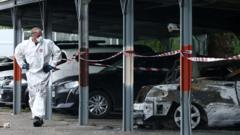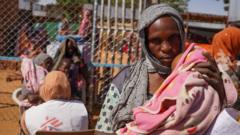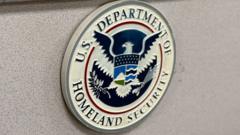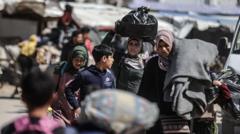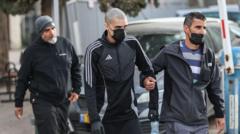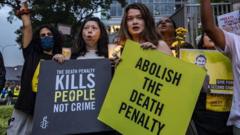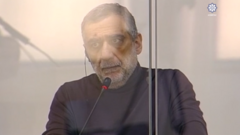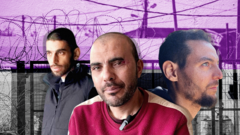Investigators have discovered a clandestine prison just steps from the bustling Dhaka International Airport, leading to the unearthing of grim testimonies from former detainees who suffered under the regime of ousted Prime Minister Sheikh Hasina. Relying on recollections and memories, particularly those of Mir Ahmad Bin Quasem, activists and victims are striving for justice for those unlawfully detained and killed.
### Secret Prison Exposed Near Dhaka Airport Raises Human Rights Concerns

### Secret Prison Exposed Near Dhaka Airport Raises Human Rights Concerns
A recently uncovered secret jail near Dhaka's International Airport reveals grim realities of enforced disappearances in Bangladesh.
Inside the secret prison, located off a narrow hallway, were small, windowless cells hidden behind a hastily constructed wall. Quasem, who spent eight years in this cell, recalled the terrifying isolation and inhumane conditions that he and numerous others endured.
His recollections of the sound of airplanes helped investigators locate the military base behind the airport, leading to the discovery of the hidden detention center. The Rapid Action Battalion (RAB), an elite counter-terrorism unit, is believed to be heavily implicated in the creation and operation of these secret facilities under the orders of Hasina's government.
Despite the regime's claims of ignorance regarding these brutal practices, numerous victims continue to come forward with accounts of torture, intimidation, and fear for their lives even after release. Reports suggest a systematic network of at least 700 similar cells across the country, leading to widespread accusations of state-sponsored enforced disappearances.
As the nation grapples with the legacy of Hasina's administration, calls for justice and accountability grow louder. The emotional scars remain with survivors, many of whom live in fear of reprisal for sharing their stories. Legal experts emphasize the need for a transparent and fair investigation into these human rights abuses to prevent recurrence and ensure justice for the victims.
In the face of such a traumatic past, advocates and former detainees like Quasem assert the importance of remembrance and the urgent need for reform as Bangladesh embarks on a difficult journey towards democracy and rehabilitation for those still haunted by their experiences.
His recollections of the sound of airplanes helped investigators locate the military base behind the airport, leading to the discovery of the hidden detention center. The Rapid Action Battalion (RAB), an elite counter-terrorism unit, is believed to be heavily implicated in the creation and operation of these secret facilities under the orders of Hasina's government.
Despite the regime's claims of ignorance regarding these brutal practices, numerous victims continue to come forward with accounts of torture, intimidation, and fear for their lives even after release. Reports suggest a systematic network of at least 700 similar cells across the country, leading to widespread accusations of state-sponsored enforced disappearances.
As the nation grapples with the legacy of Hasina's administration, calls for justice and accountability grow louder. The emotional scars remain with survivors, many of whom live in fear of reprisal for sharing their stories. Legal experts emphasize the need for a transparent and fair investigation into these human rights abuses to prevent recurrence and ensure justice for the victims.
In the face of such a traumatic past, advocates and former detainees like Quasem assert the importance of remembrance and the urgent need for reform as Bangladesh embarks on a difficult journey towards democracy and rehabilitation for those still haunted by their experiences.



